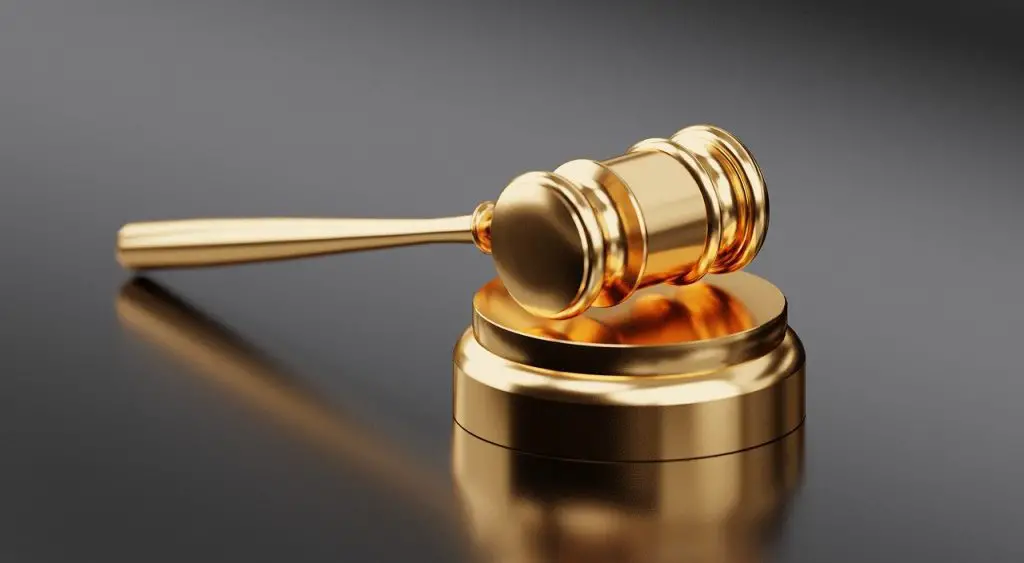This post may contain affiliate links, which means I’ll receive a commission if you purchase through my link, at no extra cost to you.
A Must Use Methods in Law School – From DAY ONE!
1l law school advice (2Ls too)
I will honestly describe what I and other law students did did to not only survive but also succeed through law school. Below are few categories of law students who can benefit from it.
This is for whom this post will be useful:
- You are contemplating going to law school and want to get prepared in advance – the best time to read this and to prepare is now.
- You were accepted and now you are a 1L (first year of law school).
- You are a 1L in Spring semester not happy with your Fall’s grades.
- You are a 2L seeking to try to raise your overall GPA while you still can.
- You have listened to metaphysical explanations by your professors, indulged yourself in esoteric Socratic method, tried to read every single page of the assigned readings till blue in your face, tried to create your outlines, but it simply did not work that well and now you are looking for shortcuts.
If you are still contemplating law school, or preparing law school application and getting ready for LSAT – I suggest you read my summary blog post about preparing for LSAT to maximize score.
Because you still have time to improve LSAT score to get into higher-ranked law school for better career prospects. Do not miss on this window of opportunity right now. This window of opportunity will close once you get into law school an start you 1L.
So, lets go.
Your professors will not tell you how to best prepare for law school exams – they are not allowed by ABA’s and your law school’s rules. They will tell you to follow the curriculum. For many students it will not yield best results.
You must learn how to maximize your studying, minimize amount of effort you expend on it so that your could network more. You MUST use shortcuts. All successful lawyers use shortcuts. All of them, with no exception. This is called “effectiveness” and “efficiency.”
Now you are tired and exhausted and realized that it is an impossible task to do everything you are assigned to do.
And if you are lucky, you are in your first month of law school reading this – still fresh and full of energy, and you first law school grades did not ruin your self esteem. Not yet.
Few important things to keep in mind:
- You will NOT be able to read everything assigned in law school.
- I repeat – even some professors told me they could not read everything in law school – there is just too much. You will not pick up and retain from textbooks all information necessary for law school exams.
- What professor talks about in class will cover at the most 60% of what will be on final exam. Yes, only 50%-60% – the rest you have to learn yourself and textbooks are not really helpful.
- You absolutely must start buying law supplements for law school NOW – commercial outlines and case brief books plus crunchtime, at least.
- You must ask 2Ls or 3Ls for a copy of outline for your professors’ classes they are teaching now. Yes, specifically, an outline not just for class, but for that specific professor that is teaching your class now. For all of them.
If you are about to start preparing for LSAT and decided to prepare for LSAT on your own – please reconsider because you may be leaving many points on the table and delaying your LSAT high score point. To maximize your score and ensure better career I suggest you take LSAT course first.
Right now Magoosh prep company slashed LSAT prep course price from $1659 to $249 for one year access to online interactive course.
But the best thing – they offer free 7 day trial access to their LSAT and other courses. That’s potential 15-30 hours of access to solid LSAT video training materials, test questions, etc. Then you can decide if you want to continue with paid version.
Shall you decide to go to law school – check my detailed reviews of recommended LSAT preparation courses for getting a top LSAT score.
Law school and bad grades
Have you you just received your first law school grades and realized that they are worse than any that you ever had before outside of law school? You, a smart A student, went to law school and got bad grades – what a shocker! There is 90% chance that you are not in the top 10%. There is a 50/50 chance that you even are not in the top 50%.
Congratulations, you have been duped. Not only you have been duped into going to law school thinking that you will somehow make riches after graduation, but you are already duped about how to study and prepare for law school exams.
Important tip: Your grade depends on one final exam, and that’s it. Only one shot.
Very Important Tip: You must prepare not for classes, but for law school EXAMS from DAY ONE.
Next tip – start learning black letter law in the outline form because you will have to quickly write/type your final exam in concise outline form, listing as many issues you have spotted as possible – to score points. Kind of opposite what what you do throughout the semester.
Much of the staff your professor talks about during class will not even be on exams, and there will be staff for extra points which you have not even discussed during class. Professors are not there to help you – they are there to be professors, do their research and get paid very well.
Sorry to break your law school bubble. You are on your own, buddy. Now it’s sink or swim.
Is this the end of life or not? No. Should you drop out now? Maybe, as long as you realize that law is not your staff and you do not want to do it. Dropping out after the first semester to cut money losses (debt) is OK. After the first year, it is not so good, but t least you will not waste money for another two years.
Bit if you are determined to stay in school and go on – read further. It is simpler than it seems as long as you follow approach developed by tens of thousands of law students before you. And that is what I will explain here. And, do not worry about grades that much. Just try to make them better and get ready to worry about practical work experience.
Check out my best recommended laptop guide for law and graduate students.
Is studying law hard?
No, it is not. But you need to study hard AND smart. Just hard will not be sufficient to obtain good law school grades.

How in law school do you get good grades?
The opinion below pertains mostly to the first year of law school. For those who are past your first year, they may catch up on the grades a little bit. They still can improve your law school grades as 2Ls and 3Ls.
But statistically the first year is the most important for your law school grades, so start working on your grades from day one.
The reason that you did not do so well may have nothing to do with your intelligence level or your ability to be a lawyer. Most likely, you are simply not prepared to take a law school exam which is an art in itself.
However, your first-year grades set your law school GPA and rank pretty much for the next two years in school and could be important for your first job and in some cases may define your whole future career.
I do recall at one interview recruiter going over some of my law school grades relevant to law firms’ specialization.
Law school class rank importance
If you are not in the top 25 schools, and then not in the top 10%-25% of lower-ranked schools, you will not have big firm associateship and may have limited employment options even after your pass bar exam. That’s bad news. However, you have other options even in such a case (see your career analysis in the end of the post).
Also, the good news is that you still have time to improve your grades in the second semester or even in the second year. Passing the law school exam requires preparation.
I will tell you from my own experience, that religious following professors’ teaching, reading all the cases thoroughly, reading textbooks will most likely put you in the average or slightly above average in your class unless you are an exceptionally gifted and can read and memorize 40-50 pages an hour.
I fact, I remember how some of the smarter students in my class saying after the fall exams were over, that they were really disappointed and next semester would study in a different way. I knew about this before I went to school because I have done my research. But I did not want to believe it and that was my ignorance.
However, I was terrified when I found it to be true almost after November 1st. Then I really started preparing for exams. I had only about 1 month left before exams. I started to read and drafting sample exam essays and answer questions. I went through a few of study aids. Even at the expense of assigned class readings sometimes.
Being called on and not being able to answer was difficult, so I toughened up a little. I used caselaw supplements to learn main rules fromthe assigned cases.

How I did it
I completely stopped having a life. I just studied, studied and studied.
I did not read all the assigned readings or cases. In fact, one of my professors, who previously graduated Magna Cum Laude, said that it is impossible to read everything, especially all the cases assigned. Which makes the whole law textbook thing kind of hypocritical. Well, publishers need to make money and feed their families too. At our expense.
Dude, my Constitutional Law textbook was over 1500 pages long! I used that book for many things besides reading. Like a holder for window or a weight balancer. So, I made the most use out of my book. I mean, I paid $150+ for it, why waste such a nice heavy object? And yes, if you want to be at the top of your class, and you are not a genius, you absolutely have to use study aids and practice materials.
HINT: EVERYONE uses study aids in law school.
The most effective way to study for a law student
Before law school, I researched the internet for almost a month. I have read forum threads, visited law school chatrooms, e-mailed people. In law school I bugged second- and third-year students, making friends with some of the top-ranking students. All that in order to figure out, how the hell to get a better grade?
By the time the semester was over, I had more friends among 2Ls and 3Ls than among my classmates. Now, since I think I am almost somewhat of an expert on this topic, I will tell you what helped the most. What worked for me and for many of other law school students, including top students, who were nice enough to share this information with me during my first semester.
See, by the third year all law students know how to study, but it is too late. Take advantage of this information now to elevate yourself in the ranks and get a better start in law school.
Law school supplements & 1L study supplements
Law school books and study aids
Below is the list of study aids and supplements that are law school essentials for law school newbie. I have read, reviewed or used all of the books or study aids listed below. I have not mentioned any of the books that I have not read or did not/do not use. However, these are likely the best books among what is out there.
1) Practice Writing Out Law School Exam Essays
First and foremost, you need to practice writing exam essays beginning no later than October 15th. Yes, even if you don’t know much about the material.
That’s a must for anyone because you DON’T know how to write an exam until you wrote your first exams and then it is too late.
I am totally aware that it is hard to find time for that. Plus, anything new and unknown takes plenty of time and drains energy. You will not be able to do many practice essays. Try to do at least 5-10 in total.
You do not have to write long essays at first – but at least short version.
Below, you will find some of the books that have practice essays and sample answers, which is very helpful. The same with multiple choice – you will be shocked on the exam by how difficult they will be and seemingly non-related to anything you learned from your textbook or in class.
Well, the books below helped me to practice that as well. Again, I think this alone adds to grades because through practice you learn how to type answer faster.
Also, it is a must to write out sample essays contained in your Crunchtime and, you might even ask your professor to look at your answers. Not that they will agree, but does not hurt to ask.
They may tell you to go pound sand, by saying something like that it will be unjust to other students if he or she helps you prepare for exams and blah blah blah. But some professors may be nice enough to take a look and give you quick feedback.
For one-year courses like Constitutional law – write out two first essays in the first semester and a third essay in the second half of the second semester.
Additionally, work through few sections of sample multiple-choice questions and short questions, then look at the answers to see what you are missing.
You may even reread corresponding Examples & Explanations part (read further) and crunch time capsule section again. The only thing to help you to prepare for exams will be review, review, review black letter law in commercial outlines and class outline (get them early from 2Ls and 3Ls or online – specifically for you class AND same professor) and practice, practice, practice.
Examples and Explanations and crunch time will give you that review and practice. Because you can write out E&E topic answers as test sample essay.
By the way, some of the flowcharts posted by a couple of my professors on their web sites came from Crunchtime. For example, the battle of the forms flowchart in crunch time explained battle of the forms issue to me better than any book.
TIP: Look for sample answers online or in the commercial outlines or Crunchtime after you write them out.
Or, buy commercial bar exam outlines materials and they will have questions and sample answers laid out. Does not hurt to look at bar exam prep materials early.
I know, it is a lot. So, chose one-two methods, focus, and make them work for you.

2) Law school outlines
Yes, a must-have. Every law student has them. Before you read any further – a note about class outlines. Yes, you should do some of your own.
But, if you only do your own – unless you are a genius – you will get only 60% of the material required for exam and will loose other 40%. Plus, you will waste SO MUCH valuable time which you could spent reading black letter law and cases from commercial materials.
Get existing outlines for your current class and that particular professor from second- and third-year students or purchase them online (as recent as possible).
Then just build upon them. There are also outline case banks online where you can purchase an outline for your particular class.
This topic deserves separate blog post which may be coming later.
3) Law school casebriefs
Casenotes or case summary books keyed to each of your class textbooks. For every class session, you will be assigned to read and analyze 2-4 cases. Then you will have to brief them. Have you ever read a case? Let me tell you – you will NOT have time to read all cases thoroughly.
By not reading them thoroughly, you will not get the core concept of the case, but if you read all of them, you will waste valuable time which you could spend by actually studying black letter law laid out in commercial outlines and preparing for an exam.
Casenotes / briefcases are supplements designed for you, so you could quickly read facts, rule and reasoning for each case, and save a lot of time to actually prepare for class and still have time to have a life and prepare for exams.
How to use them:
- Read once or twice each case brief for assigned cases in the casenote book.
- Then glance quickly through the case in a textbook – now you will understand it better and faster since you will know what to look for in the case.
Only on every third or fourth case, I would work on more thoroughly and try to brief it myself just to get a hand of the “Socratic method” professors wanted me to learn.
By the way, I read legal opinions for work now, and, frankly, I have not used the Socratic method and had no need to identify specific issues and reasoning because after reading 100 cases this skill develops naturally.
Below are sample casenote sets. There are different publishers. Make sure you purchase those tailored specifically to your required book/author for each class.
Yes, I know, it is expensive. Law is expensive profession. But you will not regret it to have it handy. At least in your first semester – get torts, contracts, property, civ pro, constitutional law.
TIP: Want to save money? Form a study group, and each of you buys a several of these guides or outlines. Then share. Lend to each other by the hour.
Best law school outlines – commercial outlines for law school.
Commercial black letter law outlines
4) Crunchtime series
This is another must-have. I loved those. Easy to read. Definitely offers a good concise basic outline of what I need to know about the course for both bar exam and law school exam.
It is far from enough for exams, but Crunchtime helped me tremendously to quickly review material for each topic that I learned in the first year, especially right before exams when I was really short on time.
These series boil it down to the core concepts you need to know for an exam. Read it not once but several times in the second half of the semester – it helps to straighten knowledge in your head.
How to use
I would quickly read each topic after you covered it in class to boil down concepts in your head in preparation for an exam. I would read this along with class outline I got from 2Ls or 3Ls. I also would read this before each class. It is easy to read because it is like an overview. Just bare essential information – good.
Read each crunchtime capsule summary 2-3 times before final exams. Then look through the flow charts after you have an idea of the course material in your head. Flowcharts actually are put in the way you should analyze essay questions during the exam. You will have to spot issues on exam and crunch time flow charts show you how your analysis must flow.
It does not hurt to work through Crunchtime in the middle of the semester – to get ready for exams.
5) Glannon’s guides, Emmanuel, Gilbert’s
Any of these will do in the order they are listed above. These are solid commercial outlines covering most of what you need in law school, and even on the bar exam.
You really may want to get a hand of the commercial Glannon’s guides, Emmanuel outlines or Gilbert law summaries. These are a longer black letter law outlines and you will not read all of them.
However, they contain names of applicable cases you studied and might help to remember staff for exams. Plus, they are specifically tailored to law school subjects and studies, contain tips for exams and explain some of the topics better than your textbook.
However, my favorite part is the short outline at the beginning of the outline book. This is what I had read in the last few days before exams in addition to my class outline, practicing essays and multiple-choice questions.
In fact, some of the best outlines from top students from previous years at my school contained sections of that particular outline. Commercial outlines cover probably most of the stuff they teach in the first year of law school. Plus, they get you ready for the bar exam by teaching you black letter law.
In my opinion, all the above is a must-have for any law student. The rest (below) is optional.
Hint: My conlaw (constitutional law) book had 1500 pages in it. So, because conlaw is less technical than property or contracts, I would study conlaw mostly using study aids and would skip some chapters in the textbook simply because I did not have time to read everything.

6) Examples & Explanations series
Really good books to have. Your textbook will have a few pages with an explanation of the materials and a bunch of questions for each topic. That is simply bs, as far as I am concerned. E&Es explain many of the difficult topics, like contracts battle of the forms, way better than textbooks.
Another great Examples & Explanations feature is sample questions and answers/explanations which could be written out as short trial essays and then looked up as an example.
E&Es are written by some of the best law school professors in the USA, so they know what law student really needs to show on an exam. Everyone I spoke to, said those are a good to have. I had all of them for my 1L classes.
How to use:
Read appropriate topic BEFORE you will discuss that topic in class. Or, at least after, if you cannot understand how it was explained in class. In fact, I used some of them instead of textbooks – they just explain the material better.
Read sample questions at the end of each section. Try to think briefly about an answer first, then look up the actual answer. That answer in E&E is what most likely your professor wants you to write in the actual exam. Try to write out some of the questions like an essay question. Do it several times during the semester. Two or three for each class is OK, but more is better.
Did you notice that I mentioned writing out questions, exams, essays all the time? That is right – you need not only to learn the black letter law in crunchtime, E&Es or commercial outlines but how to actually write law school exam essays and present information in the outline form see that your professor could give you lots of points when reading your exam.
I wish I started doing all the above in the first month of my first year, but I didn’t. In addition to law school, all the above helps to prepare for the bar exam early in law school.
7) Another useful law school study aids are Questions & Answers, or Q&As
This is also a good buy, you can buy it as a study group or just for yourself. For two of my classes, for example, a few of the multiple-choice questions on exams were almost identical to what was in Q&A! Conlaw was one of them. As a result, I knew that answer immediately because I practiced questions and answers from Q&A.
8) Law school hornbooks
Finally, before you start studying a new topic at each school, I would advise you to sometimes glance through the corresponding section of one of the best law student hornbooks on the subject.
Sounds like too much to read? Well, some hornbook sections are rather small and condensed. Still better than many textbooks. Find the best hornbooks for each 1L class in law school library. I suggest hornbooks for such technical topics and contracts and property.
I did not read too much from hornbooks – only studied few technical topics to get a better understanding as addition to commercial outlines and crunchtime flowcharts.
9) Black letter law bar exam outlines
Finally, and importantly: commercial bar exam outlines. Notice that I did not include these at the beginning of the list and for a good reason. First of all, I have not used them in my law school studies. Second, I regret that I did not. The thing with bar prep outlines like Barbri, Themis or Kaplan, is that they are tailored not to law school subjects, but rather to the bar exam. And that is a treasure.
The study aids I mentioned earlier are tailored to law school subjects, and that is their benefit. And they surely provide some help in preparing for bar exams, especially, black letter law outlines like Crunchtime, Emmanuel, Gilbert’s, Glannon’s guides, or other. I mean, Q&A and E&E help too.
But, if you surely want not to waste time and start preparing for the bar exam in advance, I would try to squeeze you time and do some reading of Barbri conviser mini-review book, or equivalent from another company like Themis or Kaplan, starting in your first, or at least second year of law school. I know of a foreigner who never went to law school and became a licensed attorney in CA using only Barbri materials.
I really wish I did it at least in my second, if not the first year – using those outlines to prepare for a law school exam, which would essentially help me to start preparing for the bar exam early. In fact, if you do not have already superb law school GPA, and your GPA is far from being superb, you may want to focus more on bar prep than on class prep starting second year (but not at the total expense of your law school grades – no one wants you to fail on exams).
So, I suggest you purchase and DO take a look at the bar outline early. If you use study aids above you may have some free time to do that.

Used or New?
Is it better to buy a used or new version? I do recommend spending less money on alcohol and travel, and spending on newer versions of the books above. The reason is that some of the new books will already be 1-3-year-old editions. Thus, by the time you will need to use the same books for the bar exam – those books might already be 4-6 years old.
While core concepts remain the same, law school exams and bar exam requirements change, and newer versions reflect those requirements, while older versions do not. For example, while I was in law school some US Supreme Court cases came out expanding fact pleading requirements for complaints. As a result, I had to catch up on that.
Why spend money on this? Are you kidding me??
While it might seem like a lot of money to spend, think about it in a different way. Why did you go to law school? To help humanity? Well, most likely you expect to make a good return on the 80K-150K that you spend on law school tuition over 3 years. If you think textbooks and reading cases will cut it – I swear it will not.
After you spend 100K on law school, would you rather start at 50-60K salary, or 70-90K? I assume you like the latter. Well, your grades will determine what job you can get in what firm, how much you will start making in your first job, what kind of summer internships, externships or summer associate positions you will get and where.
Ultimately, your grades in your first year may determine your law career and, as a result, how you live next 15-20 years or your life and how much money you will make. And that difference can be anywhere from $150,000.00 to $1000,000.00 (a million) over the span of your career, just depending on your law school ranking AND your law school grades.
The difference between being in the top 15%-20% and the top 50% can be huge, depending on law school rank.
I think it is worth to spend an extra few hundred dollars each semester, especially if you compare that expense to the tuition costs. For me, study aids freed up A LOT of my time, so I could study more efficiently and even work part-time to pay for books starting in my first year of law school. The decision is up to you.
Whether you are in the bottom half of the class, or you just short of being in the top 10% – this study method is most likely to help you move up. I realized that I was correct when, in the second semester, I saw that a bunch of my classmates buying study aids after they got crappy or unsatisfactory grades.
Your future law career requires you to compete. Well, this is how you compete, not by being born genius, but by finding ways to beat the competition. If you are in Tier 3 or Tier 4 law school – you MUST have good grades to have any decent employment prospects upon graduation.
Otherwise, you will be stuck at 100K debt with a job that pays 25K-35K (yes, some law school graduates work for this kind of money upon graduation!).
And learning black letter law is a core thing for lawyer. That is what you will be working with – with the law.
More specific tips about studying in law school
Now, as I mentioned, after November 1st of 1L I began to use heavily what I described above. Also, after November 1st I stopped reading some of my textbooks. Like, stop reading at all. I am not recommending you to do exactly the same, but try it for yourself and most likely you will come up with this conclusion.
Instead of a textbook I have read on my expanded class outline, commercial outlines, some hornbooks, E&E and reviewed topic with Crunchtime. It just worked out much better in my opinion. Better to be shamed in a class by the professor but getting a better grade on the final exam, than otherwise.
Let’s say you are broke as hell and can’t buy all the books for every class. Well, in such a case you might want to buy most of the books for some classes and not for others, depending on whether you understand class or not. I suggest at least Conlaw, Crim Law, Contracts, and Property plus Civil procedure.
Conlaw and Criminal law, because it is easy to study them using study ais. Contracts and Property and Civil Procedure – because they are technical and textbooks do not make it easy to understand topics.
Also, if you want to start with only some of the books, I would get Crunchtime, Casenotes/Casebriefs first, and then maybe commercial outlines. All these are definitely a must to have.
Now, I would like to keep E&E, Crunchtime, and commercial outlines just in case until after the bar exam and only then sell them. Casenotes you can sell right after the classes are over or keep them.
Do you think it is cheating? No. Welcome to the profession where you have to win.
Good luck. If you work hard and smart you will succeed. I did it, and you definitely can do it too.
Max Feo, JD, MBA, Tax LLM

